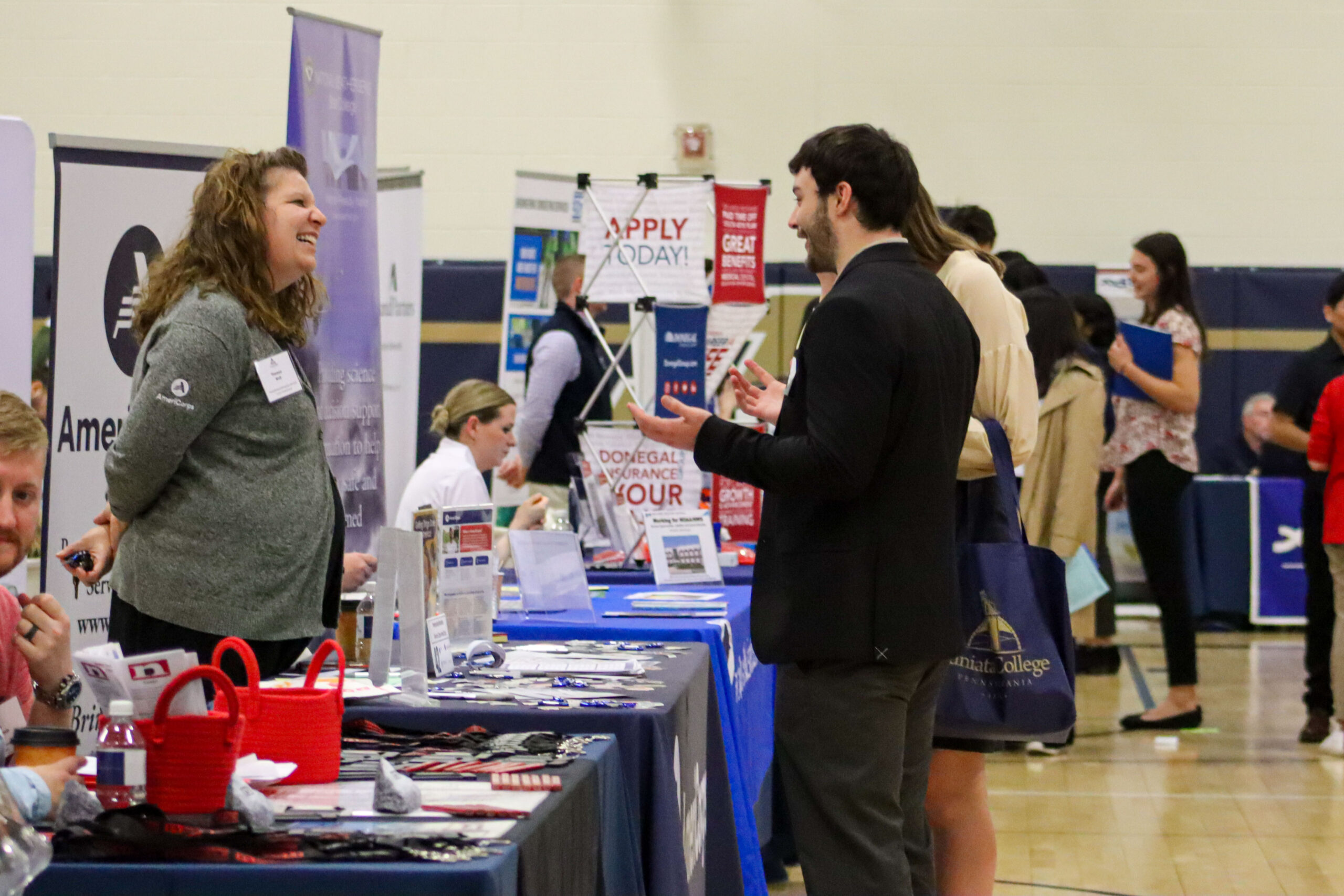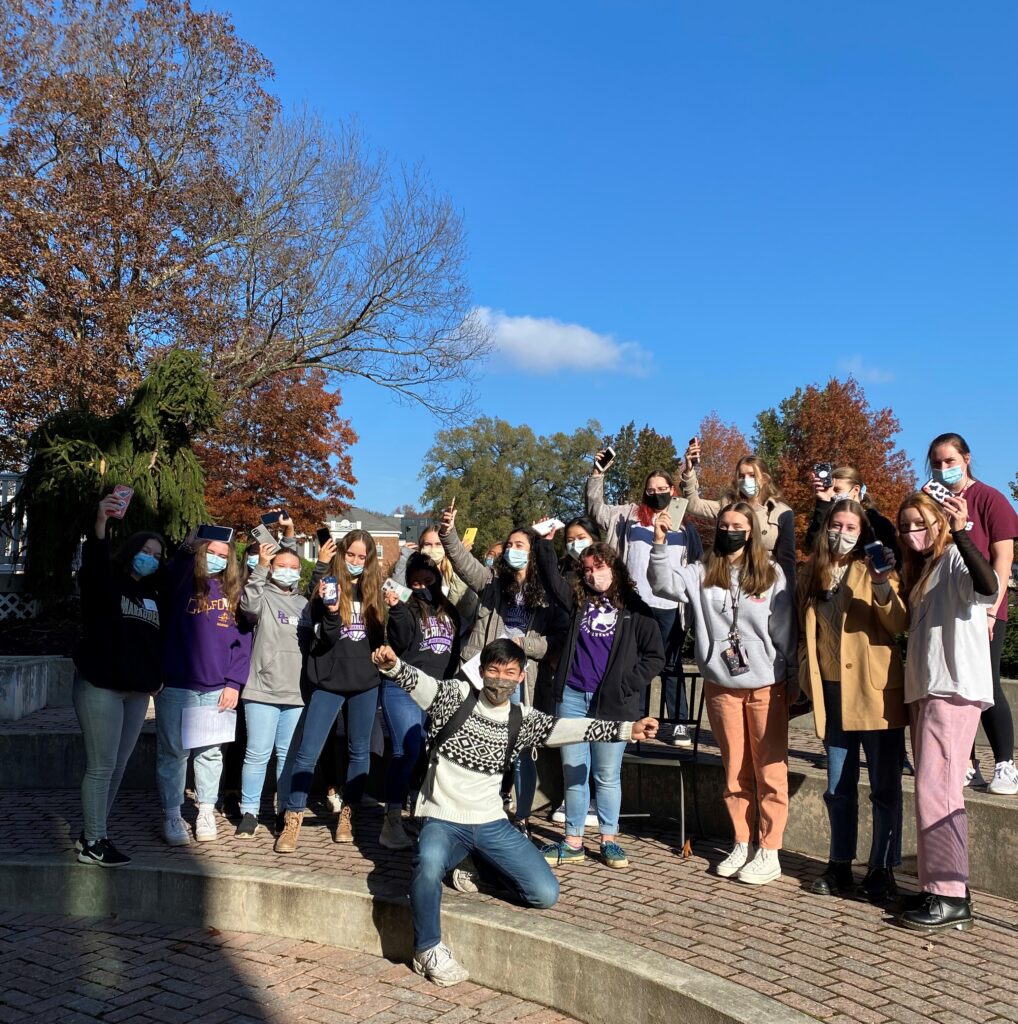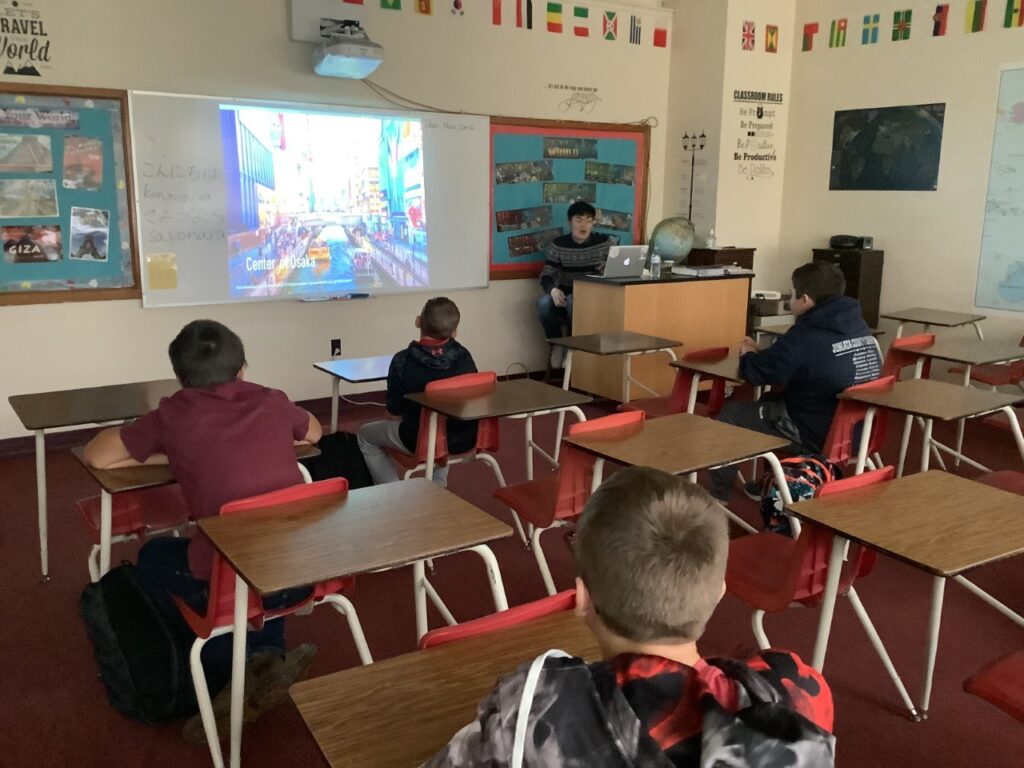Home » Academics
Category Archives: Academics
Juniata Mock Trial Team’s Season Wraps Up in Memphis
For the second year in a row, Juniata’s Mock Trial team (lovingly called the Legal Eagles) have made it to the National Championship Tournament. This year’s tournament was hosted by Rhodes College in Memphis, Tennessee, and the best schools in the country were there: Harvard, Yale, UCLA and of course, Juniata College.
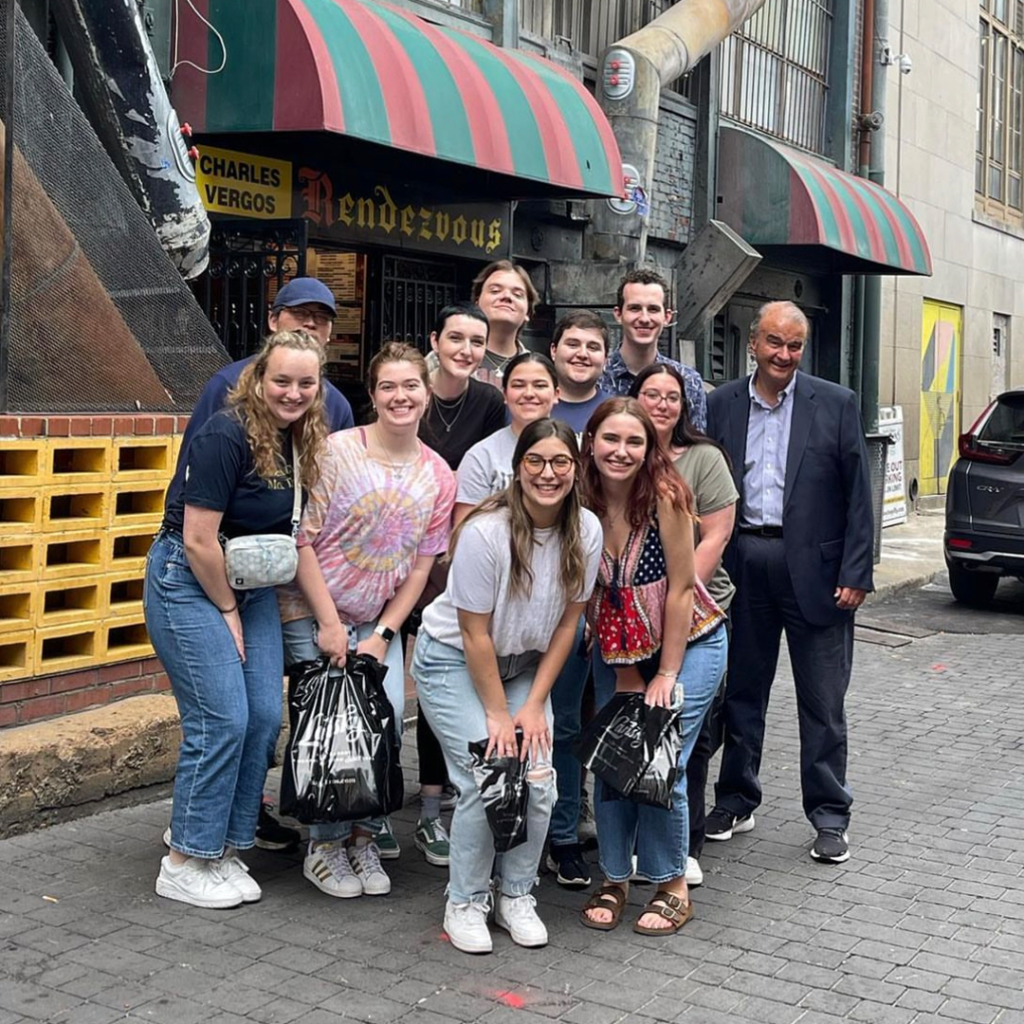
The case being argued was a legal malpractice case. The plaintiff, Robin Skye, was wrongfully convicted of killing their spouse, and ten years later is suing their Defense attorney Aubrey Gold for not doing their job well enough. The team had to prep both the Defense and Plaintiff sides of the case for a little over a month.
As a junior at Juniata, this was my third year on the team and my second time going to Nationals. I have always loved the ability to make connections with other people on campus and people from different schools. This year was no different. During our four trials throughout the weekend, we got to meet and become friends with people from the University of Michigan, the University of Chicago, New York University, and Haverford College. We also got to scrimmage Northwestern University, Macalester College, the University of Arkansas, Hillsdale College, and the University of Georgia. Overall, we finished in the top 48 teams in the country, although official rankings will come out later this summer, so stay tuned!
Mock Trial is of course a serious sport, but we also got to be tourists. From the iconic Bass Pro Shop Pyramid to the duck walk at the Peabody Hotel, we got the full Memphis experience, including getting barbecue at the Rendezvous restaurant. We spent a lot of time bonding as a team and making connections with the other teams we saw, including getting pizza with Macalester.
With the end of Nationals, the Mock Trial season is officially over. We started in August of 2022, and got to travel across the country, from Pittsburgh to Memphis to California. We have played teams as varied as Penn State University, Brown University, and even smaller schools like Wellesley College.
We look forward to the next year of Mock Trial, and the start of Mock Trial Bootcamp next August, where we welcome the new members of the team to campus. Stay tuned for next year’s season, where we will hopefully get a ticket to next year’s National Championship Tournament in Chicago, hosted by Loyola University!
Chem Camp comes back to Juniata!
As most Juniata College students would agree, we pride ourselves on hands-on learning opportunities. In order to learn, you have to practice the concepts yourself. Sure, you might need to watch someone perform a task or complete a problem so that you can understand the basic concepts, but eventually you will have to do it yourself.
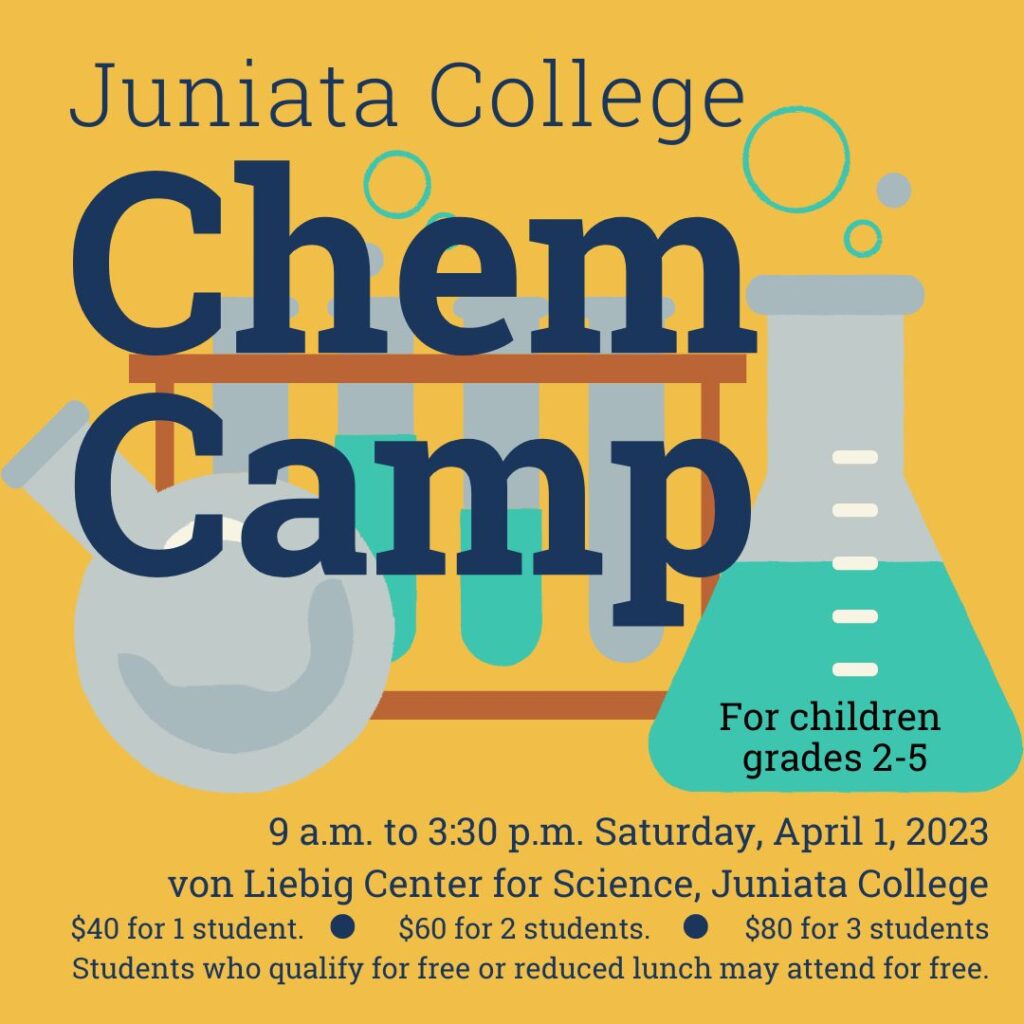
With those ideas in mind, the Chemistry/Biochemistry Department decided to bring back Chem Camp. This camp is a one-day event where local 2nd – 5th graders are invited to campus to participate in science experiments. This year, I was the Chem Camp Coordinator. I worked with professors, staff, and students to make and deliver flyers to elementary schools, advertise the event online, get our volunteers fully cleared to work with the students, and so much more.
This year, our event was held on April 1st, 2023 (not an April fool’s prank) at 9:00 AM sharp. About 45 students were officially registered in the camp and spent the day practicing science with us. While they were here, the students completed five labs, each of which focused on a different branch of chemistry.
- Color changing slime, Physical chemistry
- Volcanoes, Geochemistry
- Chromatography flowers, Analytical chemistry
- Oil spills, Environmental chemistry
- Atomic models, Organic/Inorganic chemistry
To split up the day, we fed the students lunch and took a quick brain break to get some of their energy out. From there, it was back to lab where all the students were fully engaged, making academic messes and learning in a stress-free environment. Around 2:40 PM, we gathered all the students together and welcomed guardians to join us as the Chemistry/Biochemistry Club officers put on a final demonstration. They made us liquid nitrogen ice cream, mixed fire with giant gummy bars, and froze various objects. I think it’s safe to say that all of us were excited to watch the show and make predictions about the outcomes.
This is just one example of how students are able to get engaged with campus. Elementary schools don’t always have the time and resources to complete these experiments in the classroom, so we decided to provide an opportunity to do so. Encouraging youthful students to get involved with science now will help spark creativity, curiosity, and eventually a more diverse field.
Bioinformatics Surge Remains Steady

A report released this month by Allied Market Research starts with the quote, “The surge in demand for clinical diagnostics and personalized medicines play a major role in the growth of the bioinformatics market.”
This optimism is echoed throughout a September Global newswire release that states, “The Worldwide Bioinformatics Industry is Expected to Reach $21.8 Billion by 2026.”
Keeping that in mind, Bioinformatics degrees are a hot topic of conversation among potential graduate students. Coupled with the fact that the United States is poised to lead that growth, college campuses around the country are ramping up their bioinformatics program(s). There is no doubt that COVID-19 led to bioinformatics as a term becoming more of a household name, especially as (subjects around) clinical diagnostics are now prime-time news. Moreover, with more manufacturing companies entering the medical field, hiring for innovation in bioinformatics continues to surge.
Juniata’s well-known strengths in biology, computer science, and data science are leveraged not only by the faculty facilitating the bioinformatics program but also by the students enrolled in the program. Thus, opportunities for relevant course enrollment exist, and the ability to mine knowledge and resources from these related disciplines makes for a rich and engaging experience.
At Juniata, we are focusing on creating an environment that fosters a growing number of internship and employment opportunities with local biotechnology and bioinformatics companies for those that enter this program. This allows us to both create and maintain an innovative approach to learning. It also provides our students with sought-after opportunities.
Jason Moran, Vice President for Enrollment, shares, “One of the most exciting things about being part of our Graduate Programs is innovation. Graduate programs allow students to engage in education that is part of what is happening now. In a way, it is like being a part of history. In bioinformatics, our graduate students are learning and participating in things that are changing the world. That is important.”
We encourage potential graduate students to have one-on-one conversations with the program directors and counselors before picking your school. The people matter in your selection process; those relationships with companies and professors that are part of this surge may make all the difference. Next, look for schools where innovation drives their bioinformatics program. The need for bioinformatics (professionals) is here to stay, so those differentiators will matter when it comes to being hired. Finally, look to build up your resume as you learn. We believe we can help with that.
For more information on Juniata College Graduate Programs and our Bioinformatics Degree, go to https://www.juniata.edu/academics/graduate-programs/bioinformatics.php.

